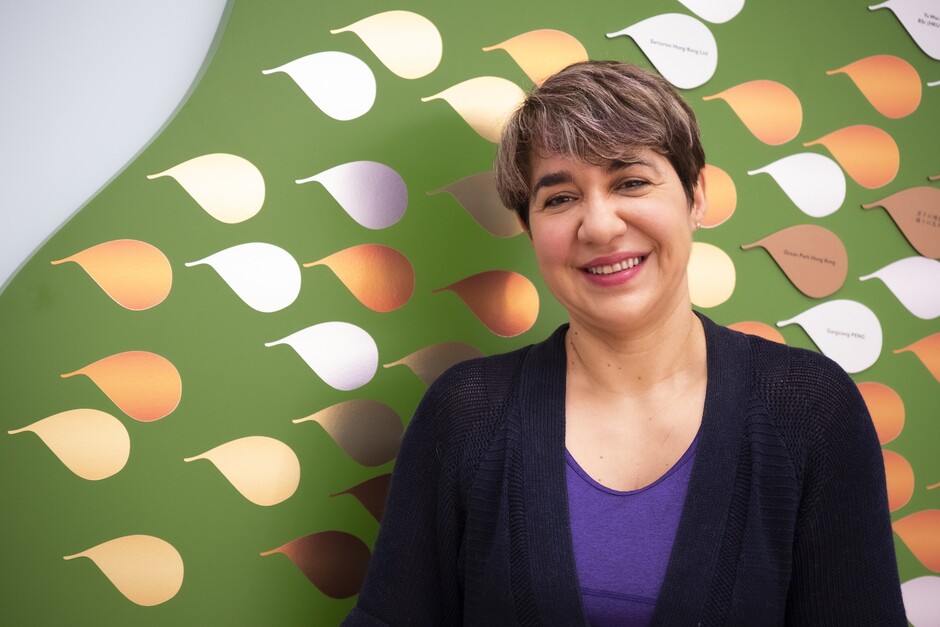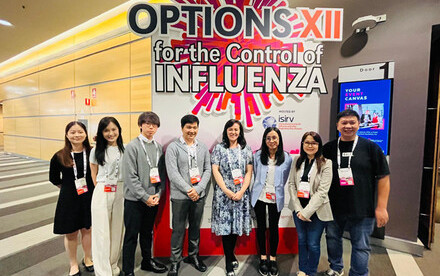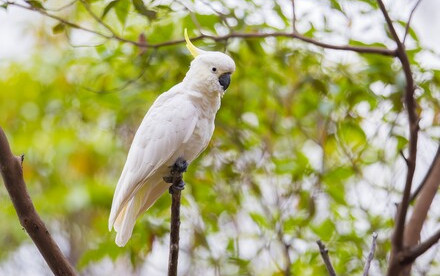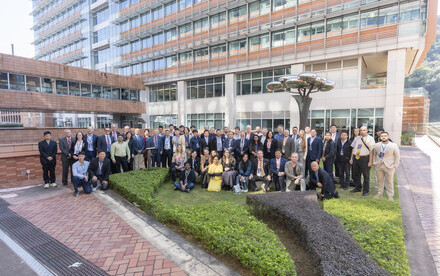28 Dec 2020
Newsletter Spotlights - Research beyond Boundaries: Interdisciplinary collaboration in action

Professor Aleksandra DJURIŠIĆ - Associate Dean for Research and Graduate Studies and Professor of Department of Physics
Associate Dean for Research and Graduate Studies and Professor of Department of Physics
The implementation of Division structure has been underway for more than a year since its inception. Building a system from the scratch is never easy. The novel approach is still new and needs polishing, and Professor Djurišić agreed that there is a need for more clear boundaries in responsibilities and roles between Departments and Divisions. Since existing administrative structure at university level has been tailored for Departments, it will take time to fix some minor administrative issues.
Teamwork makes the dream work
The best collaborations create something bigger than the sum of individuals’ contributions. The purpose of establishing Research Divisions is to enhance high-quality research by removing the barriers between Departments, facilitating more cross-fertilisation for interdisciplinary research within Divisions. Professor Djurišić emphasised that the role of the Faculty is to be a facilitator which takes part in the coordination of research activities proactively, in the hope of maximising participation of Divisions. ”Take climate change or environmental-related research topics as examples, they will inevitably touch the fields of earth sciences, ecology and biodiversity, and to some degree attach to chemistry, physics, mathematics and statistics. So what we envision for the future, is to have people doing interdisciplinary research with the concerted efforts of multiple Divisions.”
Going beyond geographical boundaries is highly desirable in fostering collaborations. A lot of high-impact projects come from joint research teams with members around the world, yet it is also discipline-dependent. ”I should point out that while interdisciplinary research is great, not all great research needs to go in this way. The same rule applies to collaborations – not all research needs to be collaborative. We should adopt a diversified approach of doing good science.”
It is like how gears work. The Faculty would formulate the overall strategy with the input from the Divisions, solicit budget from the University and provide support to Divisions, while the Divisions would put strategies in action. At the Faculty level, there are different kinds of funding available for enhancing the competitiveness of projects, be it conventional type, supplementary type or travel grant. Each Division is overseen by a Research Division Director, who will carry out their own strategies for the Divisions. ”I am not a believer in micromanagement, so I don't think at the Faculty level we should get involved in litigating matters in the absence of funding problems. It’s up to the Directors to manage their own Divisions.”
In the past two years, the recruitment process for RDDs has been ongoing. Last summer, Professor Michael NG, the RDD of Division of Mathematical and Statistical Science was on board; this July, Professor Hoi Kwong LO, RDD of Division of Physics and Astronomy, left Canada for Hong Kong to join us, and Professor Juha MERILÄ, RDD of Division of Ecology and Biodiversity has also been just on board in October. While the hiring of RDDs for other Divisions are at different stages, the developments are all at the good hands of our Acting Division Directors.
Enhancing connections with industry and knowledge exchange
HKU Science is rich in its 80-year heritage and traditions, and our strong reputation is well regarded globally and in mainland China. Over decades, it has been seen as a research–oriented Faculty with strengths in basic research in particular. “While we need to maintain our strength in basic research, we also need to consider how to strengthen our knowledge exchange and establish closer connections with the industry,” Professor Djurišić remarked. In view of this, the Faculty has been bringing in business consultant to advocate knowledge exchange. ”Since we do not have solid experience in this, and establishing startup companies here is not as common as in US and UK, we will be running more training programmes for the staff. We will also talk to the Technology Transfer Office, trying to identify the red tape barriers, streamline the process, and help interested parties to get involved.”
In 2019, HKU partnered with TCL to set up the ”HKU-TCL Joint Research Centre for AI”, fostering research development in Artificial Intelligence (AI). Professor Djurišić saw it as a significant step forward. ”It‘s quite important for the entire Faculty because this is the first time we had a centre at this scale, getting our researchers to collaborate with the industry. Undoubtedly, funding support from the industry would bring great benefits to our postgraduate students. I’d be glad to see more projects in the future.”
In addition to HKU-TCL joint centre, the Faculty has also been successful in obtaining funding for two InnoHK projects, which will also be a significant contributor towards strengthening applications of our research. Only self-motivated individuals would remain competent. “People are our greatest asset, and with these highly calibre faculties, I’m sure we can catch up with our benchmark universities soon,” said Professor Djurišić. ”Our staff have been quite proactive in pursuing research opportunities amidst the pandemic situation. Our chemists have been collaborating with LKS Faculty of Medicine to work out the possible treatment for COVID-19; we also have statisticians developing AI tools to screen suspected cases. So there are quite a lot of practical developments arising swiftly in response to the current situation,” she added.
| Profile |
|---|
2012 Faculty of Science Knowledge Exchange (KE) Award (Group award received by the Junior Science Institute) |
| 2006 HKU Outstanding Young Researcher Award |







